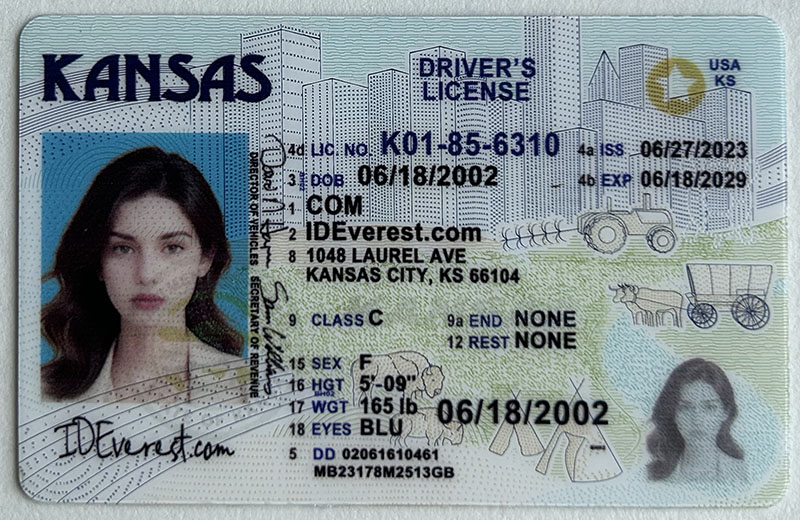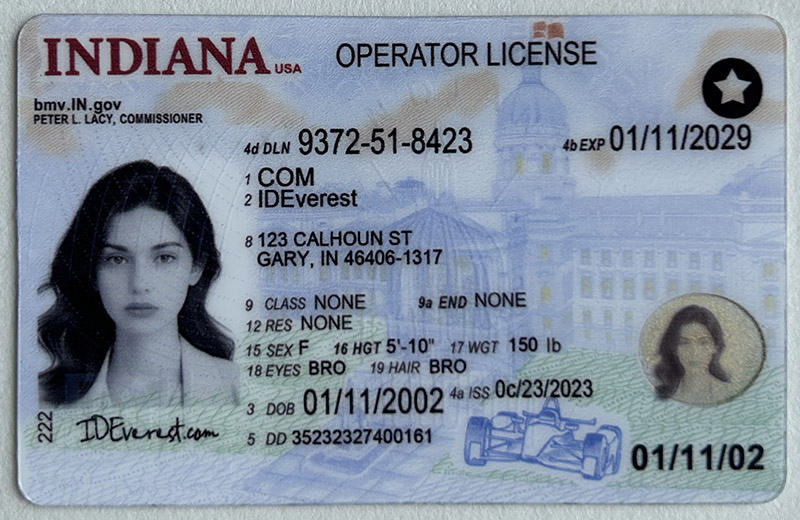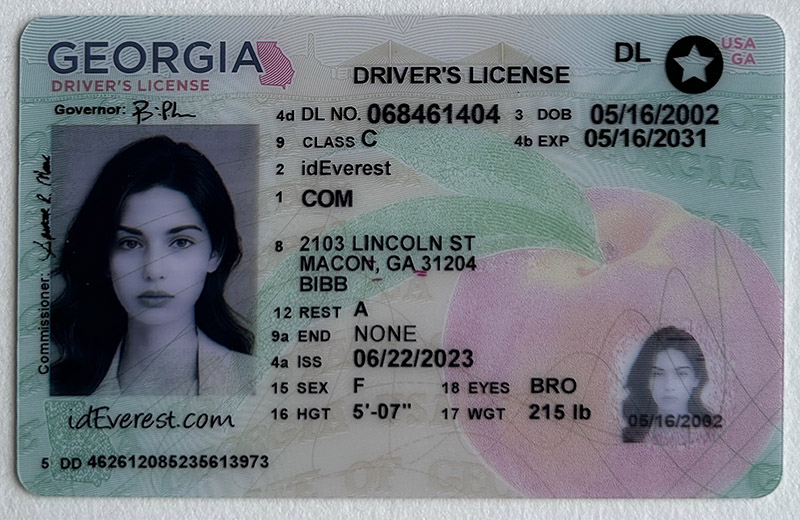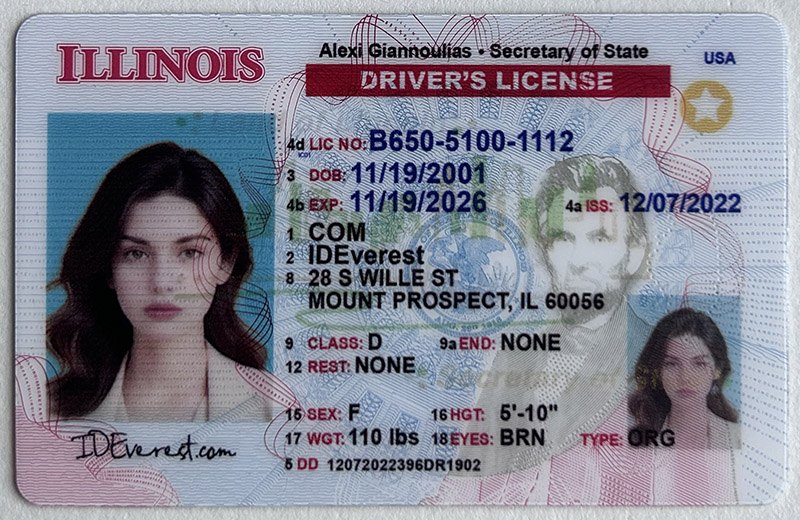How a Fake ID Can Streamline Your Online Presence
How fake IDs can improve your online presence.
In today’s digital age, managing your online presence is critical to personal and professional development. Social media profiles, online forums, e-commerce accounts, and other digital platforms have become an integral part of our daily lives.
As people become more dependent on the internet, issues such as privacy, security, and identity management have become increasingly pressing. To address these challenges, some are turning to unconventional means such as fake IDs.
This article explores the role of fake IDs in streamlining online presence, analyzing the potential benefits, ethical issues, and practical implications.
How fake IDs can streamline your online presence
A fake ID is a forged document or certificate that looks similar to a real document but is not issued by a legitimate institution. Such fake documents can include fake IDs, passports, driver’s licenses, and information from social media accounts.
While the word “fake” often carries a negative connotation, in certain contexts it can refer to tools and strategies that can help individuals more effectively manage their online presence.
Types of Fake IDs
Fake social media accounts: These accounts are set up to impersonate individuals or organizations on social media platforms, but no real individual or entity actually exists.
Synthetic IDs: These documents are based on false information and, while superficially similar to real IDs, are not actually legally issued.
Pseudonyms: Using different names or identities online in order to separate personal life from professional life.
Benefits of using fake IDs to simplify online presence
Enhancing privacy protection measures
One of the main reasons for using fake IDs online is to improve privacy protection. In today's world where personal data is frequently collected and used, remaining anonymous can effectively prevent identity theft, online surveillance, and unwanted attention.
Avoiding targeted advertising: Individuals can prevent advertisers from tracking and identifying their real identity by using a pseudonym or a fictitious profile.
Protecting personal privacy: Using fake information on less secure platforms can help reduce the risk of sensitive personal data being leaked.
Division of personal and professional life
Balancing personal and professional identities can be difficult. Fake IDs can effectively help distinguish between different online personas of a person.
Professional profiles: Professionals often use separate identities from their work to maintain a professional image and properly handle work-related communications.
Personal privacy: People can use other personal accounts to communicate with friends and family, thereby avoiding mixing personal content with work content.
Strategies for managing online reputation
Reputation management is critical, especially for public figures and businesses. Using fake identities can help them maintain a positive online image and mitigate the impact of negative information.
Controlling narratives: Individuals can control the public's perception of them by constructing a controlled online persona.
Crisis management: By using a fake profile or alias, negative publicity can be effectively responded to or resisted without affecting the real identity.
Improving security
Using fake identities can reduce the personal information associated with online activities, thereby enhancing security.
Minimizing risks: If a fake profile is stolen, the individual's primary identity or sensitive information will not be affected.
Preventing fraud: Fake personal information can be used to identify and expose fraud without affecting the individual's real identity.
Ethical considerations
While using fake identities may have some practical benefits, we must take the ethical issues involved in this behavior seriously.
Legality
Using a fake ID may be illegal, depending on the specific circumstances and legal jurisdiction. In many countries, forging or using a fake ID for fraudulent purposes is considered a crime.
It is important to understand the boundaries of the law and ensure that the use of fake IDs is in compliance with legal requirements.
Misrepresentation
The use of fake IDs can lead to misrepresentation issues, which means that an individual or organization misleads others about their true identity. Once revealed, this behavior can damage trust and reputation, which can have a negative impact on personal and professional relationships.
Privacy and Transparency
Balancing privacy and transparency is an important ethical consideration. While ensuring that personal data is secure, we should also be honest and transparent in our interactions, especially in professional settings.
Practical Applications
Creating fake social media accounts
Creating fake social media accounts means registering an account under a pseudonym or other identity. This behavior can be used for a variety of purposes, such as brand management, distinguishing personal and work content, or testing the functionality of a network platform.
Create a profile: Choose an alias and generate a profile that matches the intended use.
Content Management: Update and maintain the profile regularly to ensure that it remains valid.
Authentication by leveraging synthetic identities.
In some cases, synthetic IDs can be used for identity verification, especially on platforms where users need to confirm their identity.
Verification process: Use synthetic IDs for verification while keeping real personal information confidential.
Compliance: Ensure that the use of synthetic identities complies with relevant regulations and platform rules.
Use false identities to manipulate online presence.
Protecting online reputation with fake identification means creating a controlled persona or personal information in order to influence public perception.
Reputation management: Build and maintain a profile that presents a desired public image.
Crisis response: Use false personal information to respond to and mitigate bad publicity or crisis situations.
Conclusion
Fake IDs have multiple benefits in managing and simplifying your online presence, including enhanced privacy and security, and improved reputation management.
Be cautious when adopting this practice and consider the legal, ethical, and practical implications. Understanding the possible risks and challenges is essential to making an informed decision about using false identities in the digital age.
Finding the right balance between privacy, security, and authenticity is particularly important in today's era where online presence is increasingly important. While false identification can be a useful tool, it needs to be used responsibly and with a full understanding of the implications.


 Scannable Fake Kansas Driver L
Scannable Fake Kansas Driver L
 Scannable Fake Indiana Driver'
Scannable Fake Indiana Driver'
 Fake Georgia Driver License Sc
Fake Georgia Driver License Sc
 Scannable Fake Illinois Driver
Scannable Fake Illinois Driver